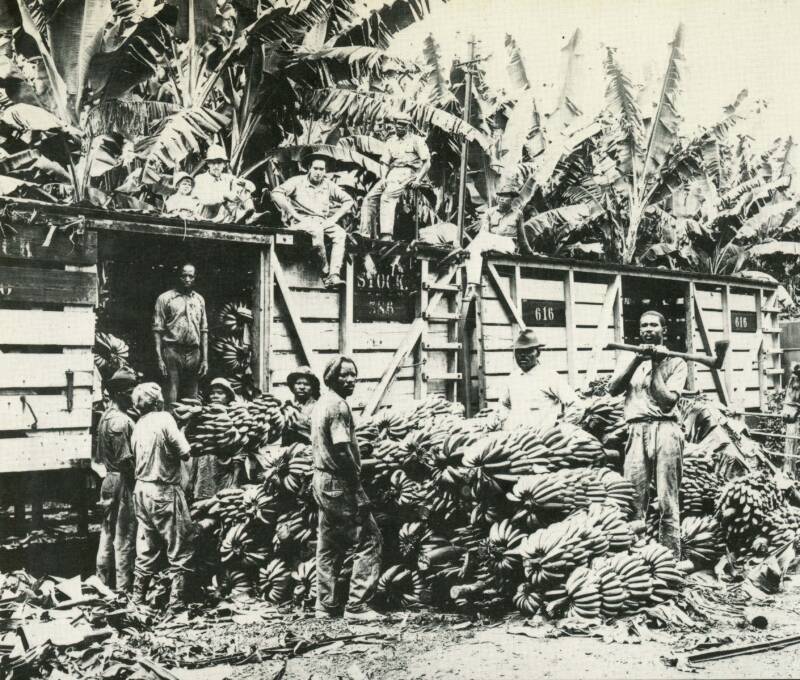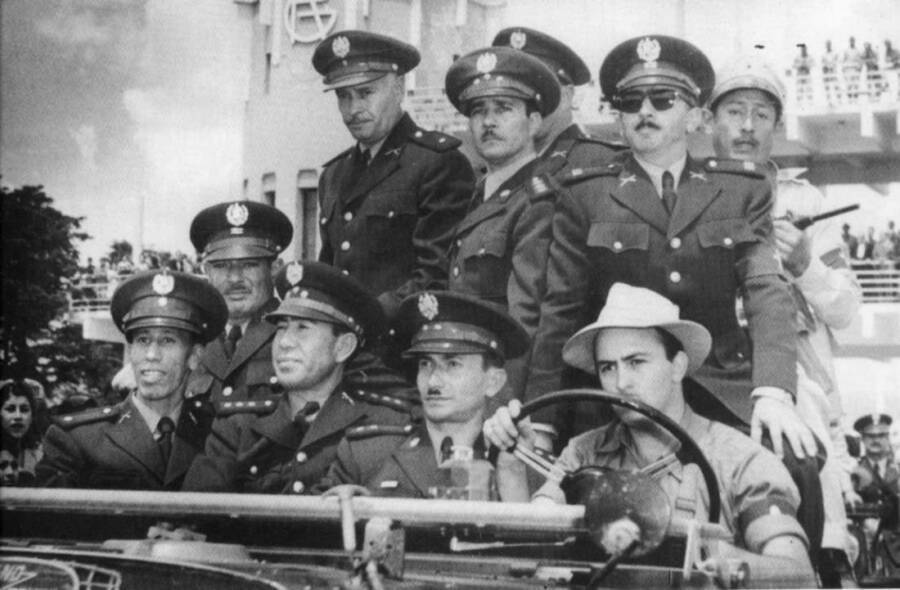Operation PBSuccess: The CIA-Led Coup In Guatemala To Protect United Fruit

Wikimedia CommonsWorkers hauling bananas at a United Fruit plantation in Guatemala.
By 1953, the United Fruit Company (now known as Chiquita Brands International) had a problem. For decades, they’d controlled 42 percent of Guatemala’s land, taking advantage of the country’s dependence on the banana to support its economy. But a democratically elected leader promised to usurp their dominance, so United Fruit reached out to President Dwight D. Eisenhower and the CIA for help.
With Eisenhower’s approval, the CIA developed Operation PBSuccess — a covert operation that would displace Guatemala’s democratically elected leader, Jacobo Árbenz, with one supported by the United States, Carlos Castillo Armas, through a coup d’état.
The coup began on June 18, 1954. To ensure its success, the CIA set up a radio station called the “Voice of Liberation.” According to The Washington Post, it spread disinformation and fear by broadcasting messages like: “It is not true that the waters of Lake Atitlan have been poisoned. At our command post here in the jungle we are unable to confirm or deny the report that Castillo Armas has an army of 5,000 men.”

National ArchivesCarlos Castillo Armas, the CIA-backed leader of Operation PBSuccess, arriving in Guatemala City.
With American pilots bombing strategic points in Guatemala City and panic running rampant in the capital, Árbenz quickly gave up. Just nine days into the covert Operation PBSuccess, the democratically elected leader of Guatemala resigned, sought asylum at the Mexican embassy and fled the country.
Though the United States declared the coup a “victory” for democracy over communism, it certainly wasn’t a victory for many people in Guatemala. Political instability surged following Armas’s seizure of power, triggering a bloody and devastating civil war from 1960 until 1996.
Indigenous Maya, many of whom had joined the “Guerrilla Army Of The Poor” to resist the new Guatemala government, were especially persecuted. Some 200,000 were slaughtered in what many refer to today as a “Silent Holocaust” or the “Guatemalan Genocide.”





